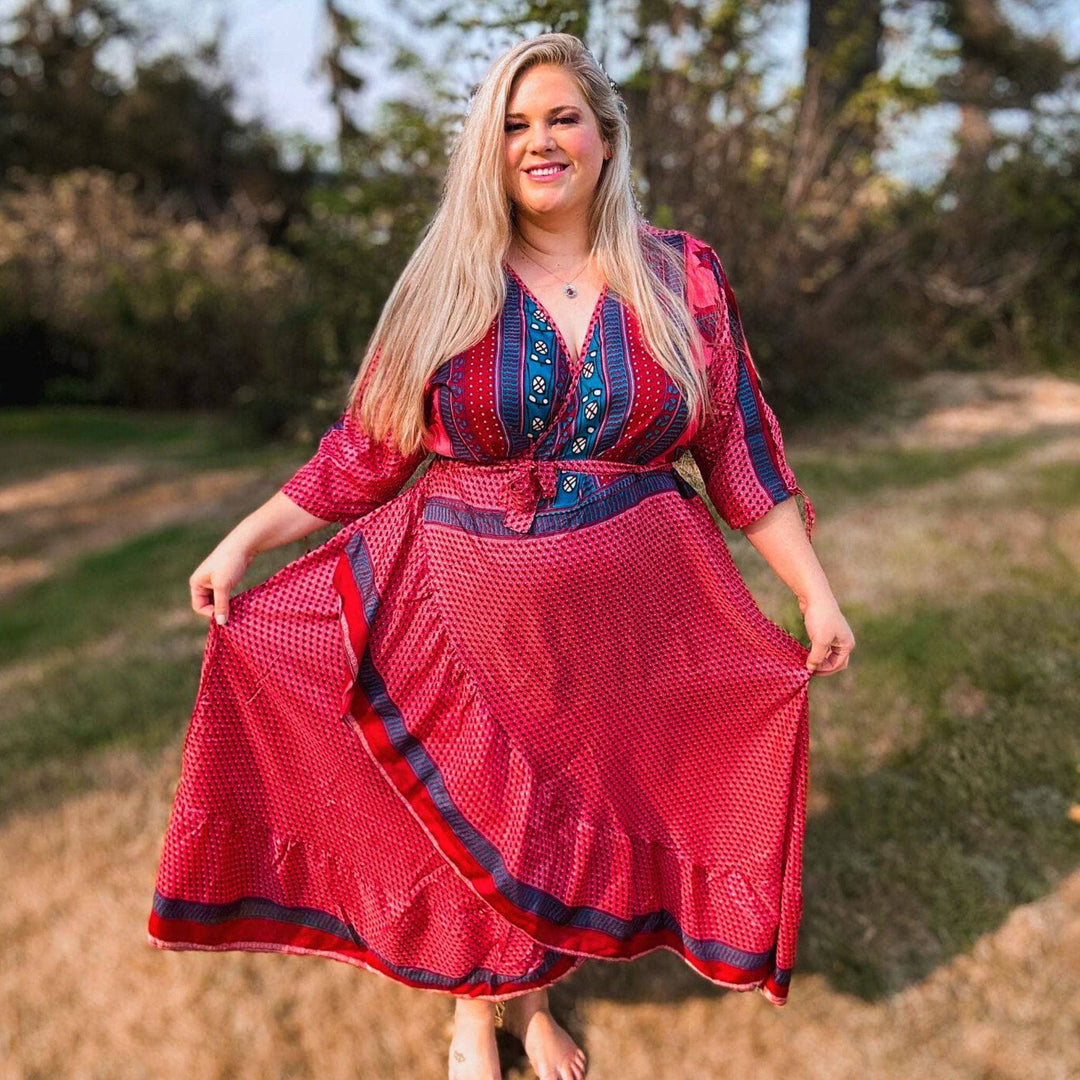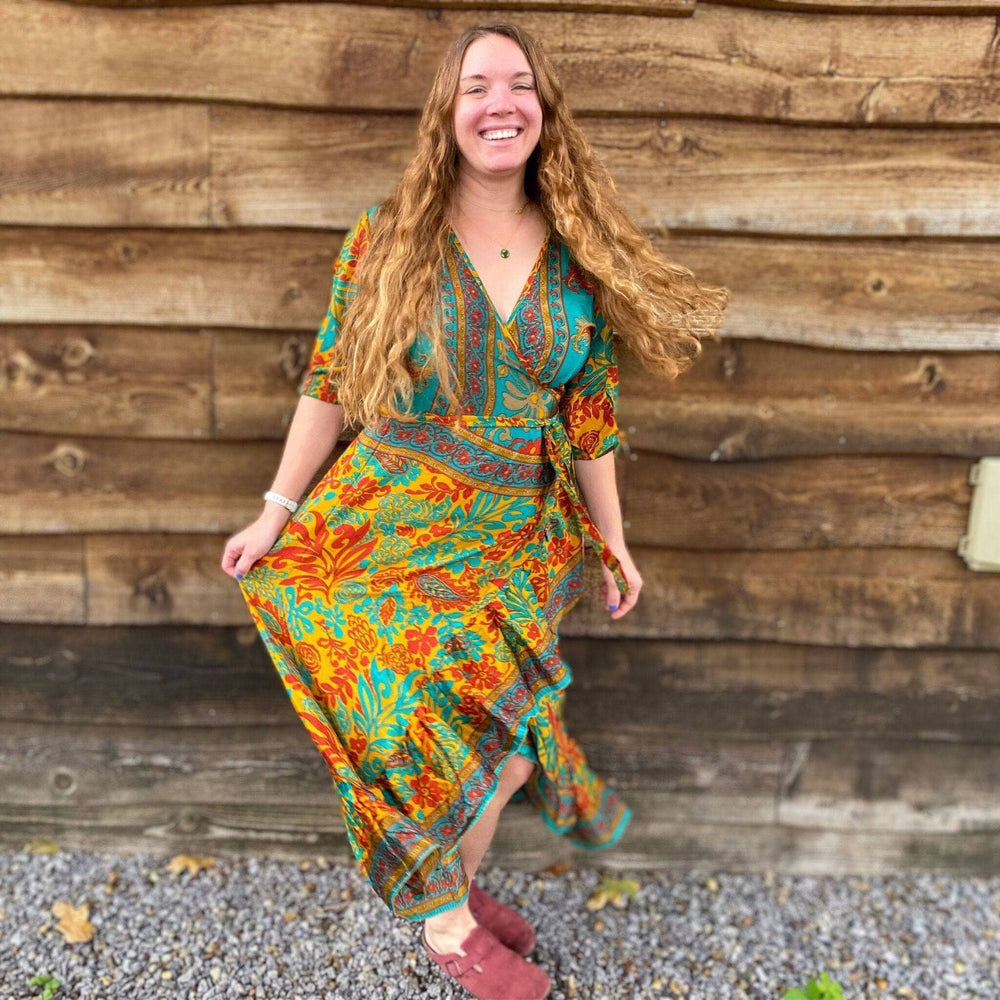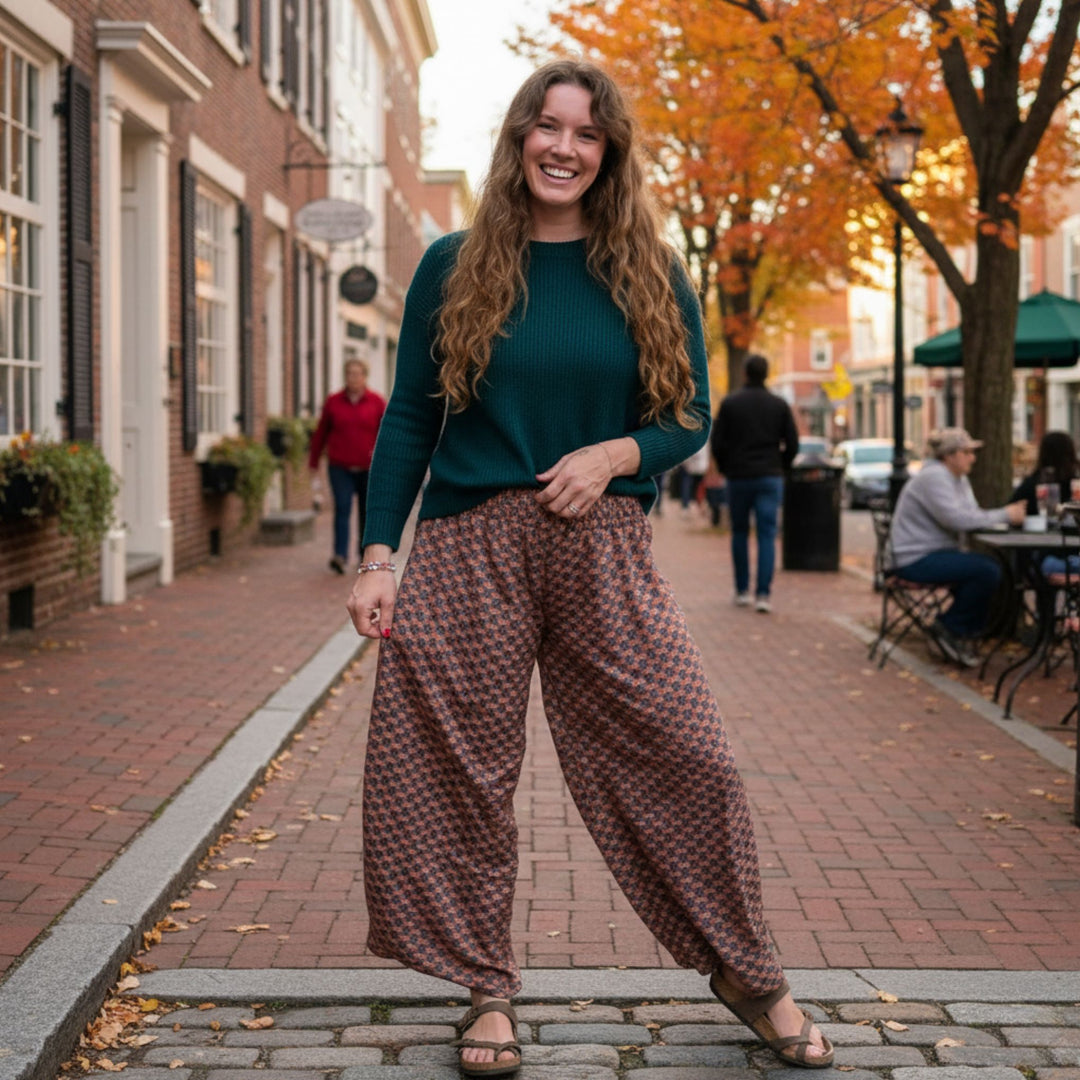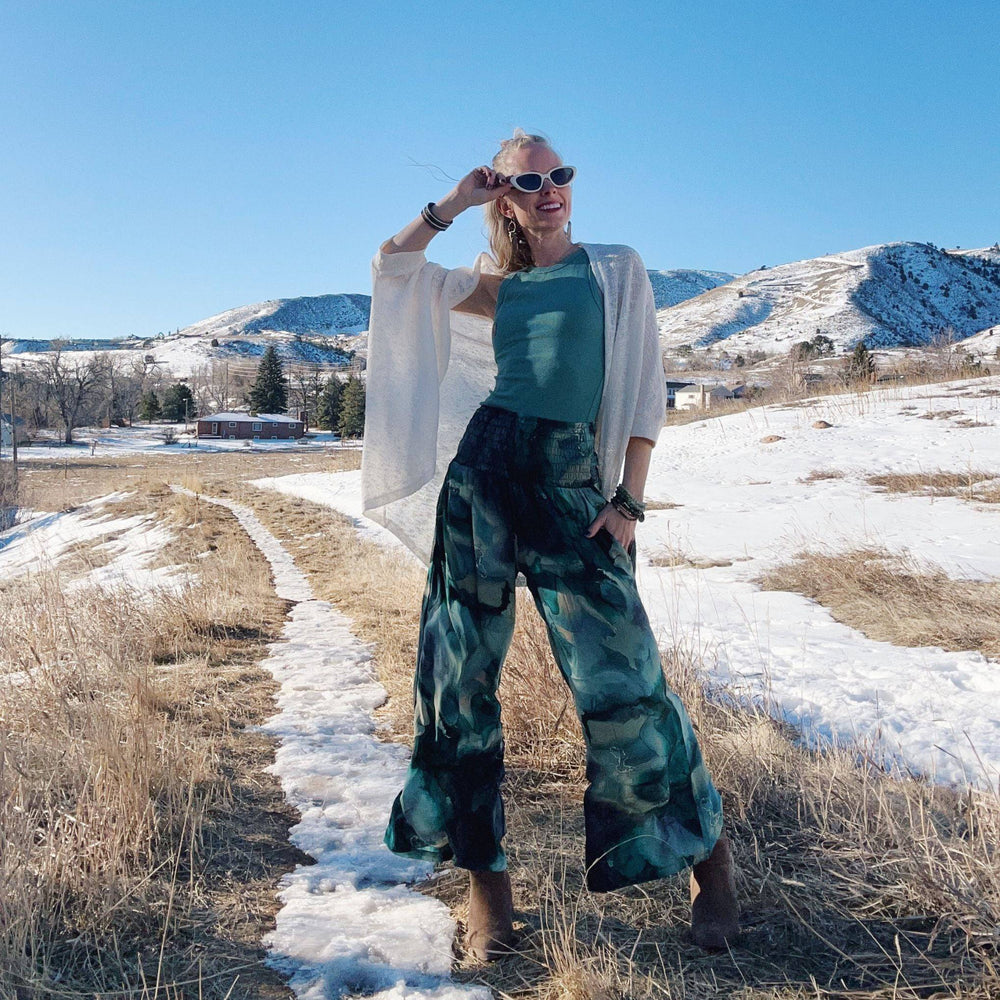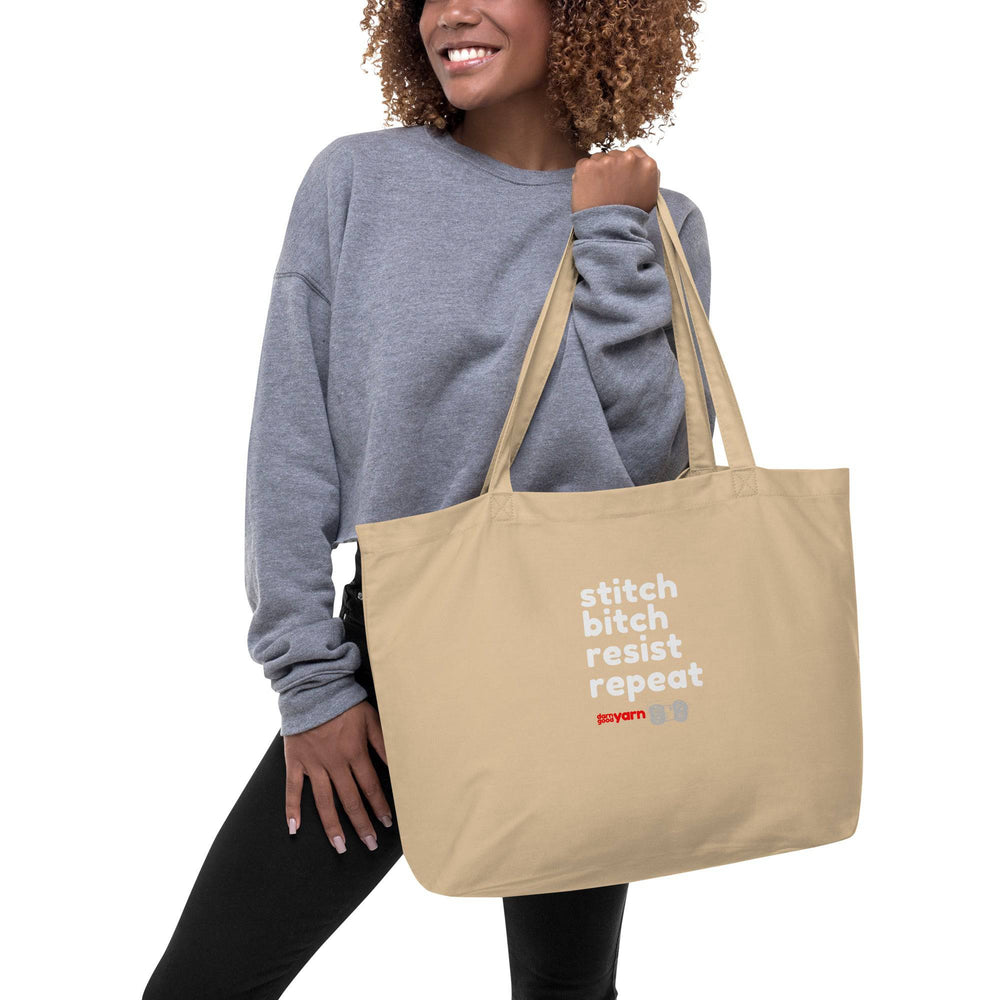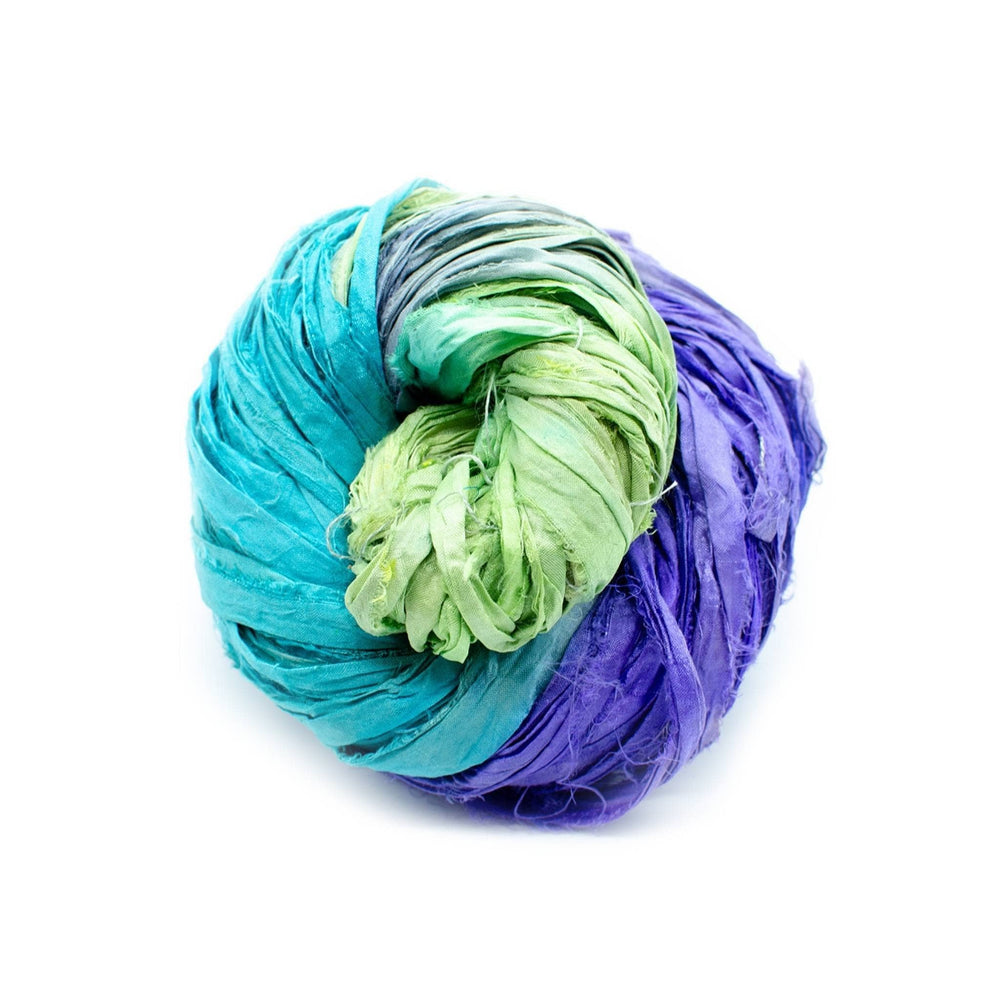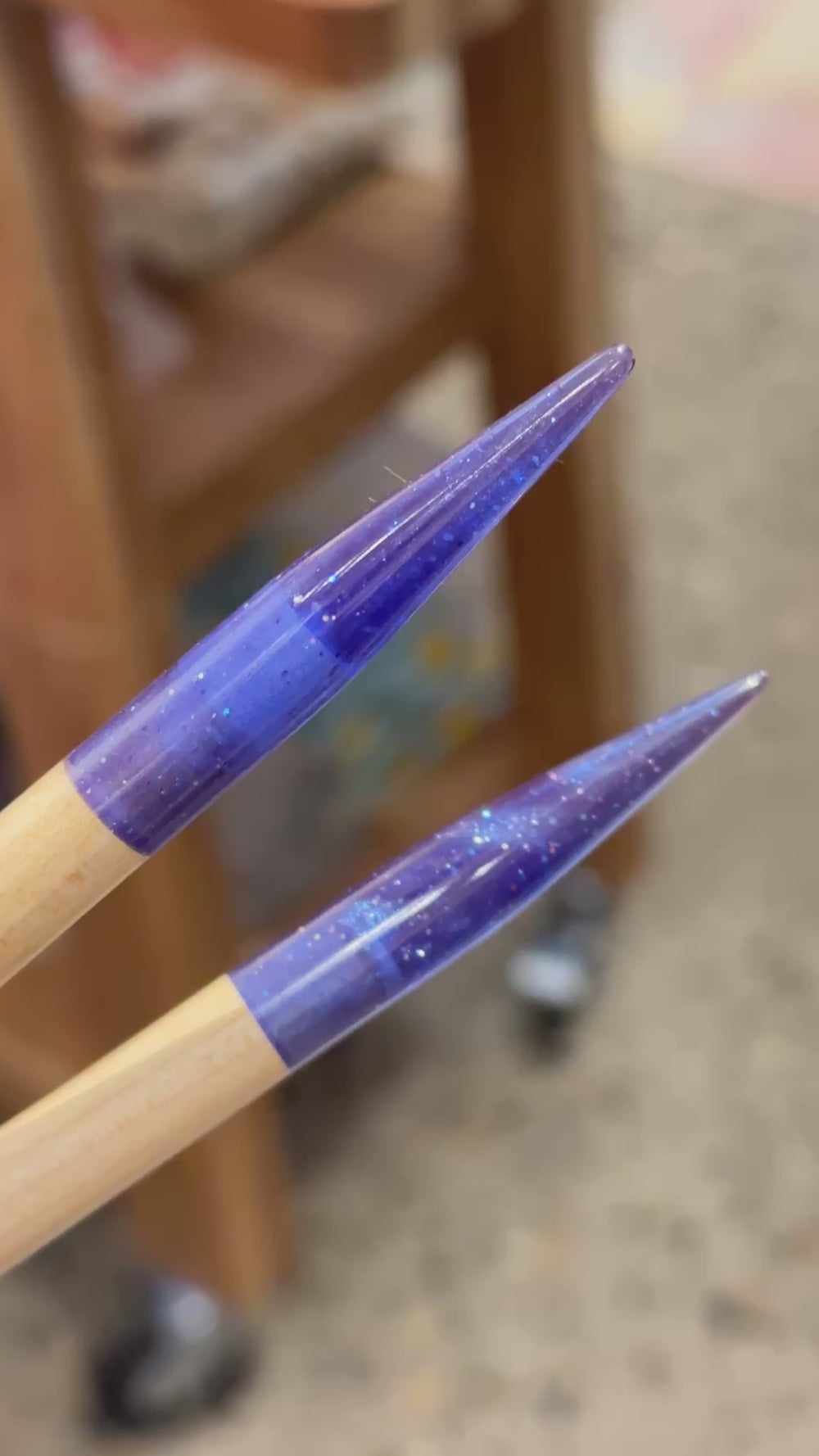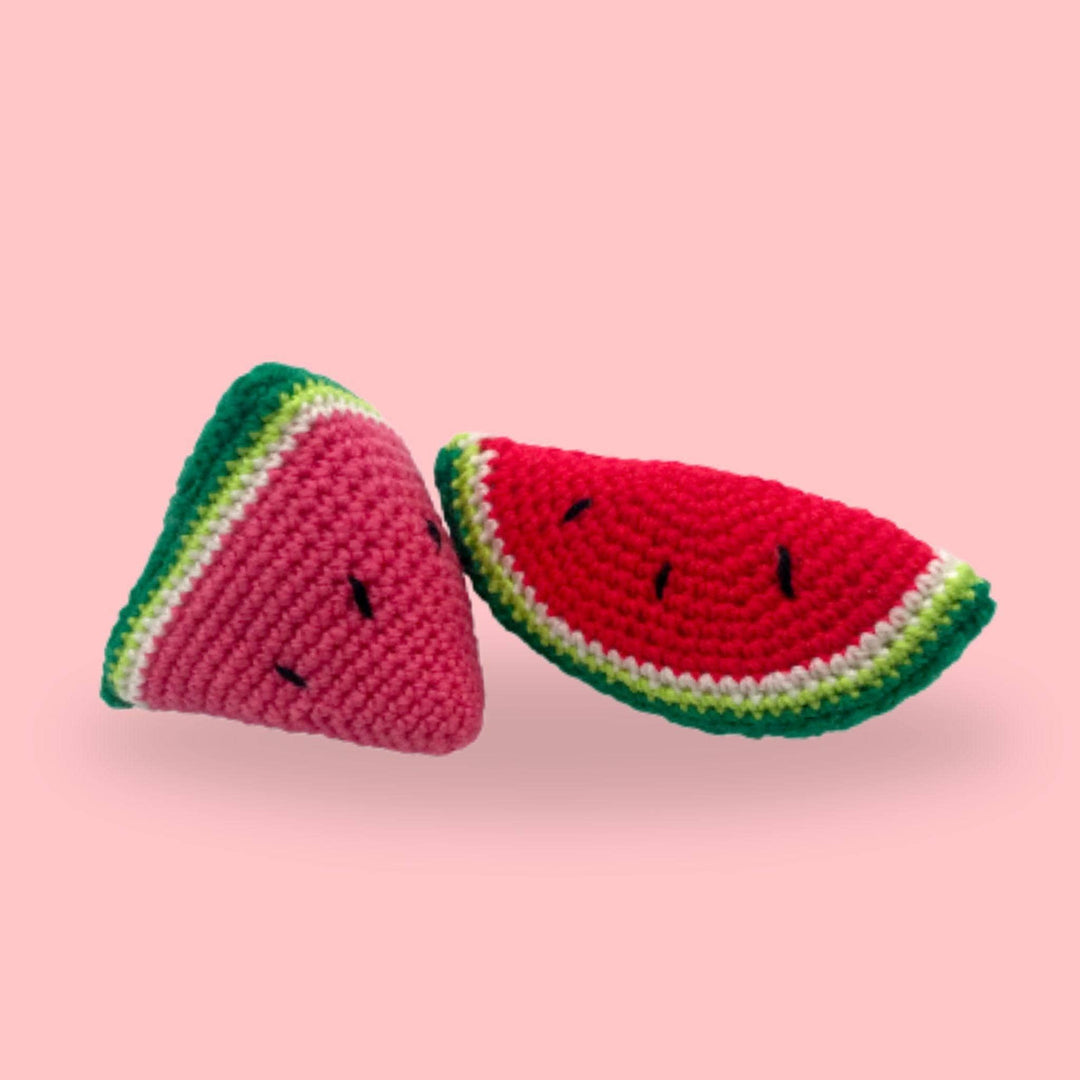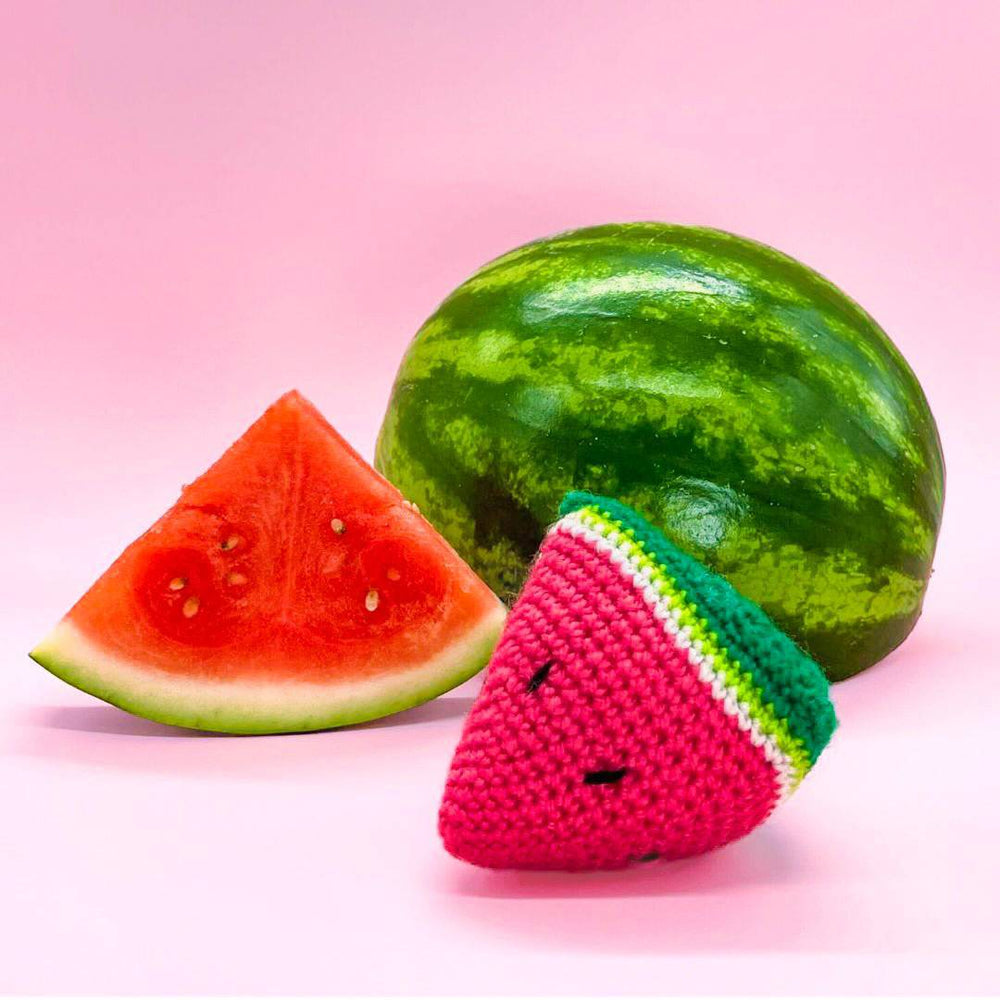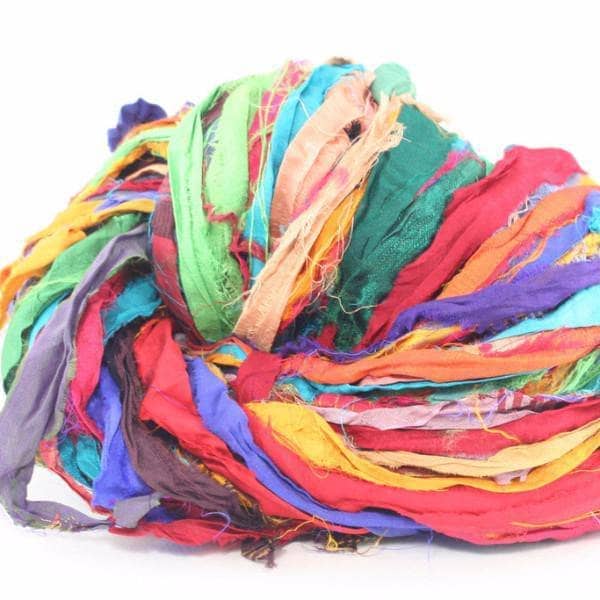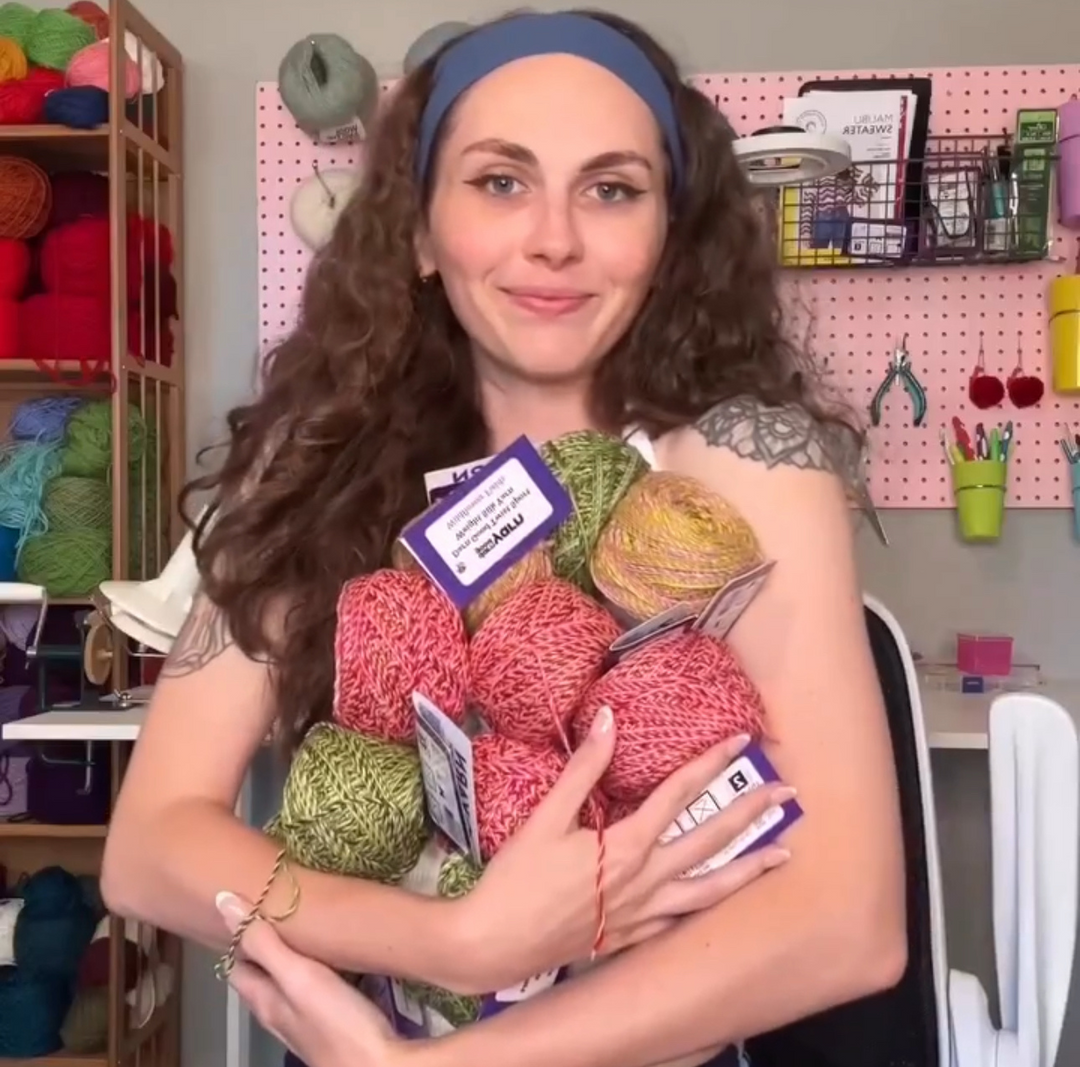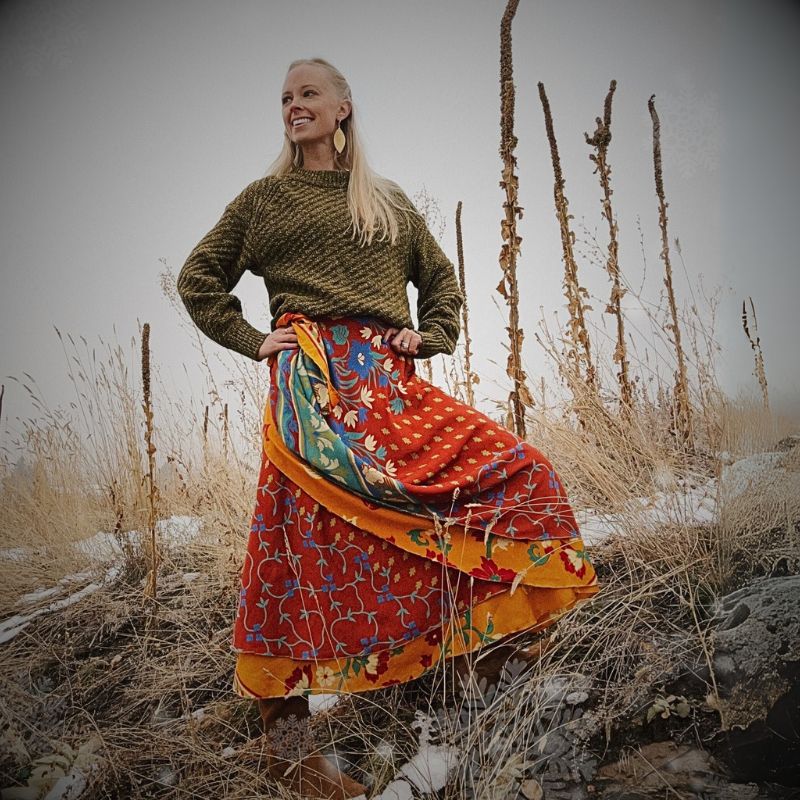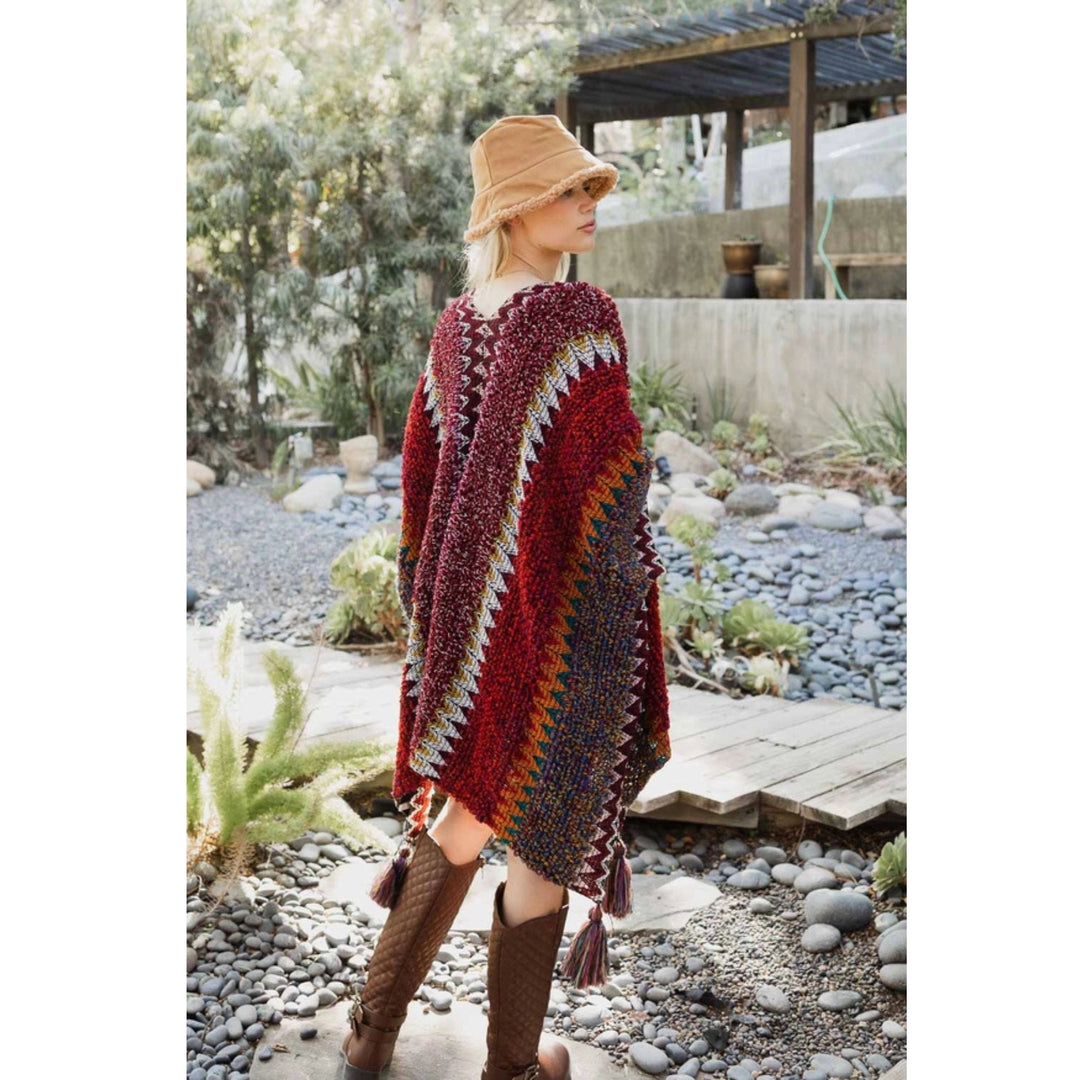Written by Kate Curry
What is Circular Fashion?
Circular fashion, also known as slow fashion, is the act of reducing, reusing, and recycling for the fashion industry. The majority of fashion companies are known as ‘fast fashion’ companies. This means that they churn out a ton of clothing that costs very little for us to purchase, but these products are bad for the environment.
With circular fashion, clothes are considered to have a life cycle. Producers create clothes carefully at every step, from raw product sourcing, production, shipping, and finally the end product. Fast fashion clothing, which is often poorly made out of cheap materials, is easily damaged and thrown away. Circular fashion clothing can be reused, recycled, or can be thrown away in a way that is better for the environment.
“Circular fashion can be defined as clothes, shoes or accessories that are designed, sourced, produced, and provided with the intention to be used and circulate responsibly and effectively in society for as long as possible in their most valuable form, and hereafter return safely to the biosphere when no longer of human use.”-Anna Brismar of Green Strategy
Impact of Fast Fashion industry
The fashion industry is the cause of extreme environmental issues. During our research, we found some stunning statistics
- 85% of clothing produced each year is thrown away (source)
- 35% of ocean microplastic pollution come from fast fashion synthetic fibers (source)
- About 10% of global carbon emissions come from the textile industry (source)
- In the USA each year, 10.5 million tons of textile waste is thrown away (source)
- 85% of textile workers do not make minimum wage (source)
Fast fashion uses cheap and often synthetic raw materials to create their products very cheaply. These synthetics can include toxic chemicals and dangerous dyes, which break down alongside the fibers to create microplastic, which pollute our waters. These clothes are also very dangerous for the workers who are around the fabrics, chemicals, and dyes more often than the average consumer.
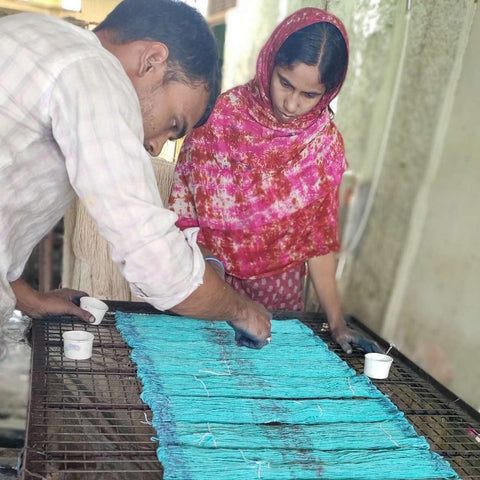
The textile industry is the most labor dependent industry in the world (source) and workers are not treated fairly or with dignity. Working for pennies a day for multi-million dollar companies, these workers depend on these jobs and the companies know that - and they take advantage of their workers.
Fast fashion has a negative impact not only on our planet, but on our global siblings.
Why Choose Circular Fashion?
So, we get it, fast fashion sucks - but what makes circular fashion better? There are a few different reasons why you should choose circular fashion!
- Quality of raw materials: Unlike fast fashion, circular fashion companies take pride in thoughtful sourcing of raw materials. You will see phrases like ‘organic’, ‘pesticide-free’, ‘herbally dyed’, ‘fair trade’, and ‘reclaimed materials’ in the titles or descriptions of products. These raw materials are sourced in ways that are not only environmentally thoughtful, but also support the communities where those materials are sourced from.
- Employment: Fast fashion does not care about their workers. How many of us have had tough retail jobs where the company does not care at all about your well being? These companies do not care for their workers, especially the workers who work to create their clothes. These clothes are typically made using sweatshop labor, usually overseas. These workers, who are oftentimes underage, create their products for pennies while the companies rake in the big money. Slow fashion companies make sure that the people sourcing the raw materials for their products and those creating their products are paid fairly and have safe working conditions! Since slow fashion companies are typically small, they also know the people that create their clothing personally - which lessens any chances of child labor!
- Protecting The Environment: Slow fashion companies work very hard to keep their sustainability initiatives! Whether that be using organic fibers, not using plastics in any of their products, or using renewable energy to create their products, circular fashion companies are always trying to protect the environment. Whereas fast fashion companies could care less, as long as they are making money. By purchasing from a circular fashion company, you are helping protect the earth!
- Quality of the final product: When a product is made out of quality materials, by people that are being paid a fair wage and treated with dignity, from a company that cares about what the impact of their company is - you’re bound to get a great quality product!


How Can You Support Circular Fashion?
Circular fashion is much more than buying a piece of clothing, you’re involved in the cycle! By supporting circular fashion, you are collaborating with your favorite makers to help put an end to textile waste!
Step One: Making Good Choices
Before you purchase any slow fashion clothing, take the time to learn about the company you’re shopping with. Make sure they’re legit and not greenwashing! Ask questions if you have to and make your clothing choices thoughtfully. Don’t be afraid to ask yourself these questions:
- Is this product durable?
- How long can I see myself wearing this?
- Where did this product come from? Were the raw materials sourced safely and sustainably?
- Who made this? Were they paid fairly? Do they have safe working conditions?
- How easily can I repair this item?
- Can this product be recycled or is it biodegradable?
Step Two: Treating Your Clothes
Woohoo! You’ve made the jump and purchased yourself some slow fashion clothing. You’re the bomb! Once you have your brand new goodies, be sure that you take care of them.
- Washing clothes in cold water helps cut costs on energy bills and save energy!
- Use all natural detergents
- Use natural wool dryer balls - or dry those bad boys out in the sun!
- Find any tears? Patch up those imperfections with stitches or some cute patches.
Step Three: Done With Your Clothes?
This is the very last cycle of circular fashion. You’ve had your clothes and you’re either done with them or you can no longer wear them. This does not have to be the end of the road though!
- Sell those clothes or donate them. If you’re just tired of them, they are still wearable and someone else would cherish them.
- Upcycle them into something else. Those jeans you don’t want, why not make them into shorts? You’re bored of your sari wrap skirt? You can make it into a tree skirt!
- Swapping is always an option. Many communities have clothing swaps, so check your local community. Check out our facebook group where people are swapping sari wrap skirts left and right!
- Check in with the company that you purchased the clothes from - they may have a recycling program!
- Does the item need to be thrown away? If so, make sure that the product is recycled or is composted so it can biodegrade.
The main goal of circular fashion isn’t to make you feel bad. We’ve all contributed to fast fashion without knowing the consequences to our global siblings or our planet. There are hundreds of small businesses that, like DGY, are joining the circular fashion revolution!
What Is Darn Good Yarn Doing?
Girl, what aren’t we doing?
For sourcing our products, we work with our artisans to gather reclaimed, donated, and discarded sari fabric from their communities to create into clothing and yarn. Our dyes are herbal or non-toxic powders that are totally safe for our artisans to work with and since our stuff is typically made out of sari silk, it is biodegradable as well!

Speaking of our lovely artisans, they are paid a fair living wage. Their jobs are year-round, safe, and dignified! Artisans have the option of working from home as well. Jobs range from sourcing the reclaimed materials, dyeing, spinning, sewing, tagging, packaging, and shipping products. We also have our Darn Good Fund, which is used for supporting the education and medical needs of our artisans and their children.

For shipping, we work with our shipping partners to ensure that shipping is as eco-friendly as possible! We use 100% recyclable boxes or poly mailers that are biodegradable. To offset any carbon from shipping, we have partnered with trees.org. Every purchase from our Be Darn Good collection goes not only to our Darn Good Fund, but also to planting trees all around the world! One less thing for you to feel guilty about when shopping with a slow fashion company like us!
When it comes to repairing our products, we have a few tutorials and products that can help you fix your sari clothing! We also have washing tips for our yarn and clothes to help you keep your goodies in tip top shape!
You may not know, but we really like crafting and upcycling. We have tons of different patterns and tutorials that can help you find some upcycling inspiration! We also have a community of amazing people that love to sell, trade, and swap clothing.

If it comes to it and you need to throw away something, you don’t have to feel guilty. Since our clothing and yarn will biodegrade, your purchase is not leaving any damage to the planet! That’s what we call smart and slow shopping!
 Rewards
Rewards





